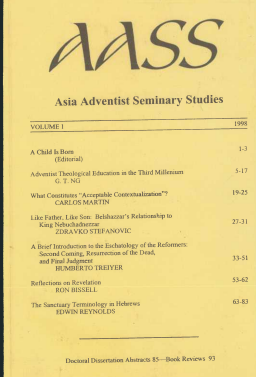A Brief Introduction to the Eschatology of the Reformers: Second Coming, Ressurection of the Dead, and Final Judgment
Abstract
The term "eschatology" is relatively new in theological parlance, not more than 150 years old, but its object of study began many centuries before through the utterances of the biblical writers themselves. As the "doctrine of the last things," according to its etymological meaning, it covers an important area of the vast field of theology. In the words of an authoritative dictionary, "the doctrine of the last or final things" includes "death, resurrection, immortality, the end of the age, the second advent of Christ, judgment and the future state."
Today the noun "eschatology" is used with two main meanings: in the narrower sense, it means the doctrine of the end of history and the beginning of the time of eternal salvation. In the broader sense, it refers to a future in which the circumstances of history will be totally changed, giving way to an entirely different state of things, not necessarily outside the framework of history.
This article focuses on three aspects of the Reformers' eschatology: the second coming of Christ, the resurrection of the dead, and the final judgment. A difficult decision has been to leave out the eschatological interpretations of the pre-Reformation writers; but as their thoughts exerted a powerful influence upon the Reformers, this omission is only partial.

